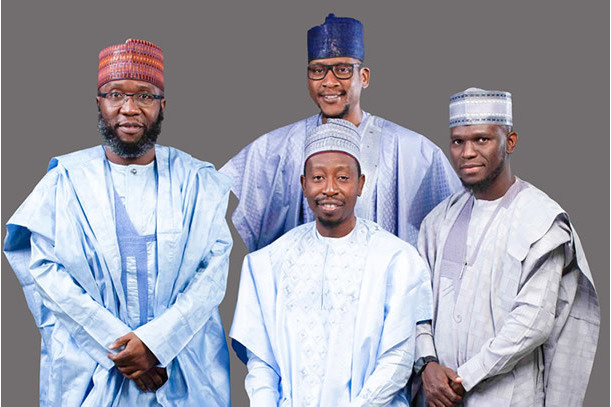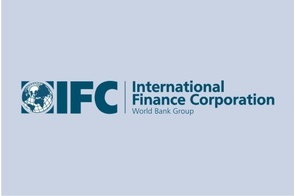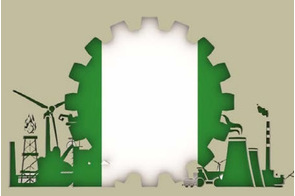Bilaad Realty: Driving value through sustainABLE cities

Summary
Bilaad aims to help interpret the SDGs into practical everyday living for our clients.
In this interview with Abdullahi Umar, Chief Business & Strategy Officer, Bilaad Realty Limited, a sustainability-focused real estate company, he discussed the opportunities and issues in Nigeria’s housing development sector.
Financial Nigeria (FN): What are the opportunities in the Nigerian real estate market today?
Abdullahi Umar (AU): The Nigerian real estate market presents quite expansive opportunities across the value chain of the sector. From industrial and artisanal production of building materials to product distribution, development of homes, housing finance and revenue generation, opportunities abound for individual and institutional investors, government, and the regulators. A recent estimate is that there is a deficit of 20 million housing units in the country. This is an increase from the 17 million units of housing deficit that have been cited for years. Indeed, the provision of real estate market data is another area of investment opportunity.
Nigeria is a country of over 200 million people. With housing both a necessity and human right, you can’t go wrong investing in such a huge market. Rural-urban migration has been expanding the demand for housing in Nigeria’s urban centres. This is also increasing the demand for development of infrastructure, health services, and educational facilities. What we see, therefore, is that the real estate sector is a driver of demand in multiple sectors of the economy. Given this trend, the investment opportunities that are linked to the real estate sector are inexhaustive.
FN: Based on the macroeconomic reality, is there effective demand for housing in Nigeria, which will spur investment into the sector, given the opportunities?
AU: One of the issues that have impacted the macroeconomic outlook globally and in Nigeria in the last two years is the Covid-19 pandemic. According to the World Bank, the pandemic has pushed an additional four million Nigerians below the poverty line. Many people also lost incomes and livelihoods. Businesses were directly affected by pandemic lockdowns and loss of effective demand by consumers. This caused a recession from which the country is now recovering from.
Although inflation in Nigeria has been above the benchmark of single digit set by the Central Bank of Nigeria (CBN) for some years now, the pandemic affected global supply chains and drove up inflation globally. Unfortunately, we are beginning to see the war in Ukraine driving up the prices of crude oil in the international market and the landing cost of petrol in Nigeria. These are serious pressure on consumers and prospective housing buyers and investors.
I think some of the macroeconomic risks are not going to be long drawn-out. For the Nigerian real estate market, returns out-weigh risks. As we have begun to see a post-Covid growth cycle taking shape, pent-up demand will also account for increased activities in the sector.
Nevertheless, my advice is that real estate businesses will have to plan against multiple scenarios and regularly revalidate their plans. This is because uncertainty is a reality of business and of life, the more so now.
FN: What is the vision that is driving Bilaad?
AU: Bilaad Realty has a vision to be a global market leader, engendering partnerships and standards in the provision of sustainable real estate solutions. This statement highlights the key components of our vision as a business entity. We are not just looking at Nigeria or the African region; we are looking at the global market. In our quest to be a global market leader in real estate development, we have set standards – promoting sustainable lifestyles – which constitutes the foundation of everything we do and consider to be valuable.
Sustainability, for us, means delivery of value over the long-term. We are solutions oriented. So far, we have focused on residential development. We are soon going into commercial real estate, and shortly afterwards, we will also be delving into industrial real estate. In all our solutions, we are very deliberate on fostering economic, social and environmental sustainability.
FN: Bilaad has admirably driven the agenda for sustainability in the real estate sector for years now. Why is real estate a frontier for adopting sustainability principles?
AU: For us, housing is the bedrock of life activities. So, the first point I would like to make with regard to Bilaad and sustainability is that we are in the business of lifestyle. We want to positively influence how people live. If we have a property in areas of open gutters, we hire people to clean them every month or desilt the water. Our preference, though, is for the gutters to be buried underground – as in some of our developments – so that you can’t smell or see them, and the water flows and flushes away. This promotes healthy living and best environmental practices.
In general, Bilaad aims to help interpret the Sustainable Development Goals (SDGs) into practical everyday living for our clients. We want to connect homes to clean water. We want to provide access to clean energy, leveraging solar and gas, while promoting efficient use of energy. From our analysis, a lot of the SDGs connect to real estate, from Ending Poverty (SDG 1) to Building Partnerships (SDG 17).
Bilaad takes advocacy for sustainability as integral to our business. We do this also because we can use sustainability to measure our progress and society’s. For instance, by powering our housing estates with solar, we can measure how much that is contributing to the reduction of greenhouse gas (GHG) emissions. We can measure the impact of our contribution to the conservation of a vital resource like water. We are also driven by the significant number of jobs that we can create across the value-chain of real estate sector.
FN: What are the major sustainability features of Bilaad’s real estate developments?
AU: The main sustainability feature that Bilaad offers is value for money. We bring together such important features as internet connectivity (fibre-to-home), greenery, wellness facilities, sidewalks, jogging and cycling tracks, recreational parks for children to go and play, clean energy, etc. The shared facilities in our housing estates significantly reduce the cost of their acquisition by individual homeowners.
A lot of thought is given to how we provide these facilities. For instance, we install drip lines for our greenery to avoid wasting water. In our larger estates, we integrated bio-digestor to convert human waste to organic fertilizer and biogas. Another example of our social and environmental sustainability facilities is our central gas system (LPG) otherwise referred to as gas reticulation in our estates. We also centralize the provision of alternative power, either from diesel- or gas-powered generators.
Bilaad participated in the Nigeria Energy Support Program, sponsored by GIZ (Deutsche Gesellschaft für Internationale Zusammenarbeit) where the designs of our properties were reviewed for compliance to sustainability standards. Our developments incorporate large windows to allow home occupants to maximize sunlight. We integrate this energy efficiency measure with smart switches and other home automation facilities. We also use double glazed windows, which enables the use of a smaller powered air conditioning to cool the same amount of space compared to a single strip of glass.
All the features we provide, taking cognizance of social and environmental responsibility, together deliver cost-efficiency to homebuyers. I would also like to add that all our sustainability features are major, because they are carefully selected solutions, and they together form our value offering.
FN: Would you like to highlight some of your recent and ongoing projects?
AU: I would like to start with how we name our communities. Our communities are named after islands. As generally known, an island is a location surrounded by water. We consider every other thing outside Bilaad’s communities metaphorically as water. In this view, our developments are the centre of attraction, as an island is viewed – bringing peace and serenity to our residents.
We are close to delivering a total of 1,000 houses within the Federal Capital Territory, Abuja, with about nine developments, cutting across Jabi, Utako, Mabuchi, Maitama, Asokoro, Guzape, and Wuye districts. These developments offer what we refer to as mid premium and luxury housing. We have categorized and segmented the markets based on the different needs of people and based on where they are in their career. People in the early stage of their career are not looking for a big house to own; they might just be looking for a one-bedroom apartment or a two-bedroom apartment, and we have those types of houses available. There are also people who have advanced in their career, with a growing family, looking for a terrace or duplex.
Our team is available to take potential and existing clients on tours around our project sites and help them in their decision-making. We see ourselves more as a guide to prospective homebuyers. We are happy when we are able to advise people on the things that they need to look for in making their buying decision, whether or not they buy property from Bilaad. We are glad to offer information that will help homebuyers and thereby help society. We have also continued to support the industry as a whole, especially with our sustainability advocacy and by leading by example.
The projects that we have ongoing include Bobowasi Island, Borabora Island, Maldives, Mauritius and Amazon (although the Amazon is not an island, it was named deliberately because of its location). We also have Bahamas, Bimini Island, and Seychelles.
We are looking at breaking into the Lagos market. Hopefully by mid-year, we should have our first project in the state. We are trying to maintain an organic approach to our growth, which is important to maintaining delivery of our sustainability principles and practices in every one of our projects.
FN: With regard to improving liquidity in the real estate market, what role do you see that Nigerians in diaspora can play?
AU: Please permit me to preface my response by saying that Nigerians at home have a role to play in fostering investment flows from the diaspora. The role is largely concerned with improving our business practices. The government and the regulators also need to foster an enabling environment for investments – local and foreign.
When people talk about Nigerians in diaspora in the context of attracting inward investments into Nigeria, there are two perspectives to this. One is capacity in terms of knowledge and technical knowhow, and the second is capital. To leverage both, we have to improve the business climate of the country. The government has to be very deliberate in encouraging diaspora investment.
Having said that, I would like to say that Nigerians in diaspora are missing out on investment opportunities in Nigeria. Part of the reason for this is because the risk of investing in the country is often over-magnified – or exaggerated – by those looking at Nigeria from outside. One of the ways to overcome the high-risk perception is for Nigerians abroad to partner with credible businesses at home to invest.
It is my view that lack of capital is often not the major challenge that businesses face in Nigeria. More often than not, the challenges are lack of ideas and technical expertise to execute. Nigerians in diaspora can, in various ways, help in addressing the technical capacity gap.
FN: London used to be a haven for real estate investment for affluent Nigerians – and maybe it still is. But rich Nigerians have a new fad of buying properties in Dubai. How can this investment outflow from the country be drastically reduced to boost the domestic housing market?
AU: There are a number of reasons why some people would own properties in other countries. Such persons may have businesses in the overseas countries, or they may have significant investments there. Capital is attracted to places of opportunities and security of investments. The certainty of access to a well-developed legal system to obtain impartial justice in the event of dispute is also an important factor for investing in a foreign country.
It is important for Nigeria to reverse the investment outflow, but this is best done by improving the domestic investment climate. But it is legitimate for an investor to look for how to improve his or her returns where that is legally feasible. The macro-economic challenges in Nigeria today, especially high inflation, has to be addressed to make the country more attractive to investment.
FN: What is your outlook for Bilaad in the coming years?
AU: Our outlook is that of sustainable growth. Considering the investment opportunities that we started this discussion with – the huge housing deficit, the extensive value chain, the need for innovation, and linkages to other sectors – we are excited by the prospects for growth. Bilaad is also supported by a team of young professionals that are driven, innovative and relentless in offering solutions.
We are looking at expanding our interest in the value chain of housing and not just limit our growth to real estate development.
A number of factors will influence our outlook. The first is our commitment to health and wellness through the provision of sustainable housing. Second, we will be keenly observing the political landscape. Political risk is understandably on the radar as the country is entering the next electoral cycle. It is important that stakeholders should avoid escalation of the risk, so that it can very quickly dissipate after the general election which comes up early next year. Third is our active engagement with the opportunities.
Over the last four years, our project portfolio has grown substantially. This astonishing growth is one of the distinguishing characteristics of the Nigerian market. Looking forward, we see that the efforts of the government to diversify its revenue from oil and gas can help unlock more opportunities within the real estate value chain.
Related
-
Outlook of post-covid-19 Nigerian real estate sector
In the new workplace post-COVID-19, cities will need to serve more residents who work from home, says PWC.
-
IFC supports green bond to finance green buildings in South Africa
The real estate sector is estimated to generate about 40 percent of the world’s CO2 emissions.
-
At 61, Nigeria should renew commitment to sustainable housing
The cost structure in the Nigerian (urban) real estate market, based on foreign sourcing of housing materials and inputs, ...










